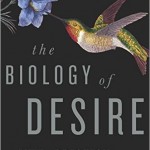Although this page will pick up the threads from Pain (1), I want to mention two comments received already, because they’re relevant to where we go from here. One was about working with the ideas and assumptions that may be associated with pain, and I shall propose some that I’ve used myself, or supported others in using, and report what happened as a result. Another interesting comment asked if physical pain and mental pain are different, and in what way. Both writers seem to acknowledge a physical and a mental component to pain, and to suggest that these two may interact at the level of causation, on the experience of pain, and perhaps figure in its relief.
Although it might be stretching a point to assert that anger, fear or anxiety cause pain, these emotions could well modify our experience of it, lessening it in some cases (as when a badly wounded soldier fights for his life in unarmed combat against an enemy) , or increasing it (as can happen when the cause of the pain is not obvious to the patient, who fears it may be a sign of impending death).
These and other psychological modifiers I shall explore, albeit not in great detail, and not necessarily as a specialist practitioner in evidence-based pain management techniques. I therefore welcome other contributors who can challenge, supplement or break new ground in this investigative effort.
*************
In 1970 I emigrated to sub-Saharan Africa (Zambia) on a three year contract in the medical department of a huge American copper-mining consortium. My job was primarily as a qualified nurse-teacher, but I also had substantial personal hospital nursing experience, including tropical and some emergency medicine and surgery, gained in UK before setting out for the sub-tropics. I had never set foot outside the British Isles, however. I had no knowledge about other countries or cultures, and had earned an examination grade D for “Disgraceful” (Mr “Sniffer” Ellis, my geography teacher) in Geography.
The work involved a lot of hands-on clinical work as well as teaching and I felt reasonably at home in the modern hospital where I was based. This was on the edge of a huge mine “township” where mine employees and their families lived. Almost all the patients were indigenous African workers and their immediate families. Most of the nurses were African, though all the doctors were white as were the senior sisters and matrons.
A few months after I started there was a catastrophic underground collapse and flooding in a major section of the mine workings, which were several hundred metres below ground, and full of workers and heavy plant (machinery, earth movers, and giant transporters). About 400 workers were trapped by falling rock along a 1 km long lateral traverse twice as wide and high as a London Underground tunnel.
I was woken in the early hours and summoned to work to help with the recovery and treatment of injured and dead miners. Within twelve hours, scores of bodies had been raised to the surface, and the hospital was full of crushed and mangled survivors. The rescue teams were brave, well-trained, and as determined to save the lives of their comrades as miners anywhere in the world. But the situation was generally ‘organised chaos’.
As I worked with others on the badly injured patients, some devastatingly so, I was struck by how undemanding the patients seemed to be and, in the case of patients who weren’t unconscious or anaesthetised, by their not showing signs of serious physical distress or pain. The same seemed true of the African staff, whose approach to care was not that of the “soothing hand on fevered brow” kind, but brisk, matter-of-fact, and cheerful, whilst observing the simple protocols of African social behaviour. The concept of ‘sick role’ which is very prevalent in British hospitals even to this day, seemed to be absent.
Professor Michael Gelfand, “one of Africa’s most distinguished medical practitioners”*, founding professor of African medicine at the University of Rhodesia (now Zimbabwe), and author of ‘The Sick African’ (1957) has posited that Africans have ‘a high pain threshold’, meaning that they have a lower susceptibility to pain than white races, the implication being that bantu (negro) races have a coarser and less refined physical and neurological endowment than that of the superior European race, thus lower sensitivity to pain.
This was the received wisdom (amongst white practitioners) at the African hospital where I worked. I did not believe it then, and Professor Gelfand has himself recanted his opinions (he is now deceased), in the light of his own ethnographic and cultural researches. In my own experience, pain has a different meaning to the African patient than it does to most of us northern Europeans. Although it may be inconvenient and uncomfortable, it is generally much less disabling and has fewer emotional correlates (such as fear or anxiety), than it does for non-indigenous people brought up in a different culture.
After the mine accident, men who had endured serious crush injuries or fractures necessitating whole-limb amputations, or major burns, were able to get up from their beds within hours of admission or major surgery without prompting or assistance, to clean their teeth, take themselves to the shower rooms to wash, and to use the toilets unaided. The level of resilience, self-care and independence was astounding to me. Little analgesia was required or requested. This impression I inferred about the meaning and significance of pain for indigenous African people survived my whole experience in Zambia over many years of work there.
However small my justification for a firm conclusion on the matter, I am inclined to think that culture and upbringing is likely to be a key determinant in the human response to pain, alongside psychology. I confess to not knowing how to proceed with this idea beyond the point stated here.
* Unattributed source, http://en.wikipedia.org/wiki/Michael_Gelfand

